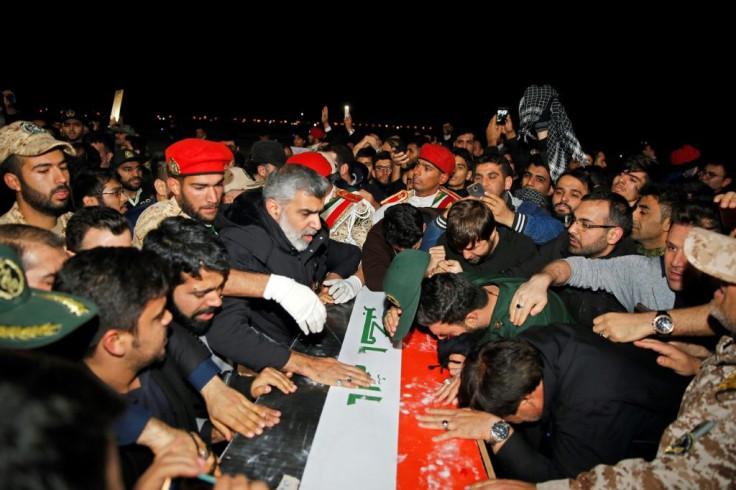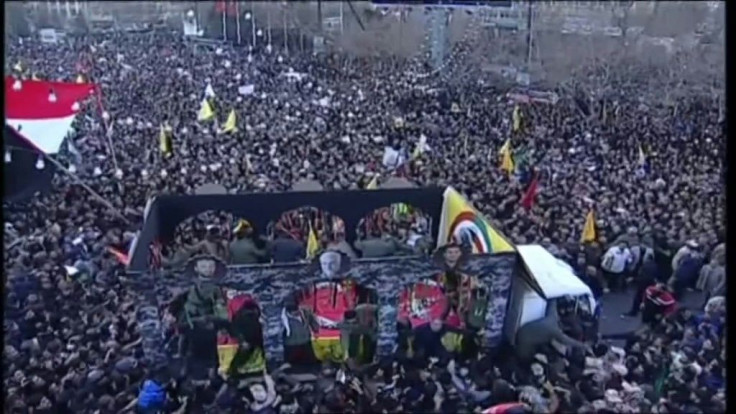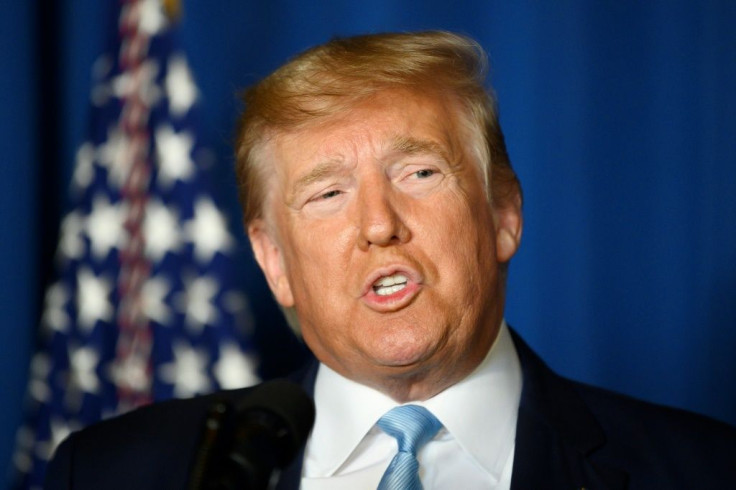Trump Threatens To Attack 52 Sites If Iran Retaliates To Death Of Military Leader

KEY POINTS
- Trump says he will order attacks on 52 Iranian sites if Iran avenges death of Qassem Soleimani
- Iran says it will attack 300 U.S. military targets if Trump does so
- There is a growing consensus Trump's stated reasons for assasinating Soleimani are illegal
The U.S. Department of Defense is remaining strangely silent amid increasingly bellicose statements hinting at war being made by president Donald Trump and his secretary of state Mike Pompeo.
Trump on Saturday revealed the U.S. military had drawn up a target list of 52 civilian, cultural and military sites to be attacked should Iran retaliate against Trump for the assassination of major general Qassem Soleimani on January 3. Trump's secretary of state Mike Pompeo on Sunday further revealed the target list referred to by Trump also includes high-ranking Iranian civilian and military leaders. Military analysts noted this is the first time Trump has drawn a red line that dares Iran to cross it.
Doubts also persist if the Pentagon had indeed listed down 52 targets or if Trump had invented the number to embellish his statements. In one tweet, Trump said the 52 sites represent the 52 American hostages taken by Iran during the 1979 hostage crisis at the U.S. embassy in Tehran.
"Let this serve as a WARNING that if Iran strikes any Americans, or American assets, we have ... targeted 52 Iranian sites (representing the 52 American hostages taken by Iran many years ago), some at a very high level & important to Iran & the Iranian culture, and those targets, and Iran itself, WILL BE HIT VERY FAST AND VERY HARD. The USA wants no more threats!" tweeted Trump.
Trump's tweets are "ridiculous and absurd," said Hossein Dehghan, the main military adviser to Iran's Supreme Leader Ayatollah Khamenei, to CNN. He said Iran's response "will be military and against military sites."
If the United States does carry out Trump's threat to strike any of Iran's cultural sites, then "for sure no American military staff, no American political center, no American military base, no American vessel will be safe," said Dehghan. "If he says 52, we say 300, and they are accessible to us."
Dehghan was referring to attacks on cultural sites being considered a war crime by the United Nations. Iranian commentators have long pointed out every U.S. military base in the Middle East is either within striking range of Iranian missiles or by militia allied with Iran.

The United Nations Security Council has said the targeting of cultural heritage sites is prohibited. In 2017, a UN Security Council resolution "condemns the unlawful destruction of cultural heritage, including the destruction of religious sites and artifacts." This resolution, which the U.S. signed, was drawn-up to condemn the Islamic State's destruction of a number of major historic and cultural sites in Syria and Iraq in 2014 and 2015. The UN emphasizes to this day that actions targeting cultural locations constitute a war crime. Attacking cultural locations is also illegal under the 1954 Hague Convention for the protection of cultural sites.
"The deliberate destruction of our common cultural heritage constitutes a war crime and represents an attack on humanity as a whole," said a statement from then-UN Secretary-General Ban Ki-moon in 2015.
Nicholas Burns, former undersecretary of state for political affairs and ambassador to NATO, said the Trump administration supported the 2017 UN resolution condemning destruction of cultural sites.
"His threat is immoral and Un-American," tweeted Burns.
Donald Trump’s threat to destroy Iranian cultural sites would be a war crime under UN Security Council resolution 2347–supported by the Trump Administration itself in 2017 to warn ISIS+Al Qaeda of similar actions. His threat is immoral and Un-American. https://t.co/CMdz1ky9CP
— Nicholas Burns (@RNicholasBurns) January 5, 2020
Trump’s threat to attack Iranian cultural sites is “a pretty clear promise of commission of a war crime," claims Oona Hathaway, an international law professor at Yale and a former national security law official in the Defense Department’s legal office. She said Soleimani's assassination is likely also illegal because the Trump administration hasn't shown the threat he posed was imminent in the sense that it was so urgent action was required without consulting Congress.
On Sunday, Iranian Foreign Minister Mohammad Javad Zarif responded to Trump's tweets about 52 Iranian targets. He accused Trump of threatening a "war crime" and breaching the norms of international law.
"That is, a big(ly) 'no no,'" he said.
Trump has since continued threatening Iran via Twitter and in one tweet hinted he would bypass Congress in attacking Iran.
“These Media Posts will serve as notification to the United States Congress that should Iran strike any U.S. person or target, the United States will quickly & fully strike back, & perhaps in a disproportionate manner,” he tweeted Sunday afternoon. “Such legal notice is not required, but is given nevertheless!”

© Copyright IBTimes 2025. All rights reserved.





















